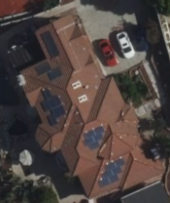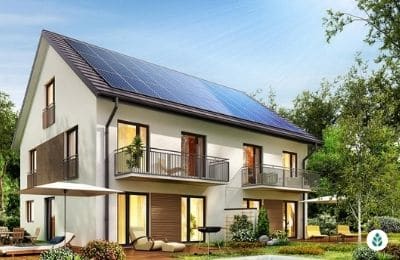Value perhaps, according to bean counters.
The real question is what it does to resale price.
Notice they use the word "value" not "price". And talk about why buyers (say) they are looking for, not what they actually pony up for:
"Do solar panels hurt the resale value of your home?-
Generally speaking, the opposite is true; installing a home solar array actually increases the resale value of a home, particularly if you have a high-efficiency system that helps lower monthly energy bills. Solar literacy in your local community is an important factor here, but for most homeowners, the answer to this question will be a resounding no. Multiple studies have shown that buyers are looking for more energy-efficient homes to reduce their carbon footprints and help save on electricity bills."
Clue is in the last sentence.
So they prefer smaller, less conspicuous. They want to know or say the have PV, but it must be out of sight?
"Do bigger solar installations present a better value add than smaller systems?-
Bigger solar installations may present a better value add than smaller systems. However, in many cases, it’s not the number of panels that matters so much as the power output. A smaller system, assembled with the
most efficient solar panels can be just as impactful as a larger, lower-efficiency system. The aesthetics of the system may also be a factor, with many buyers actually preferring smaller, less conspicuous systems."
All marketing, I think. They want their cut when you buy a system. Don't care if a prospective buyer passes on your listing to buy something else clean.
Not mentioned is the issue of Power Purchase Agreements and other entanglements.
I think home solar should only be considered when you expect to get the value out of power produced during your ownership.






